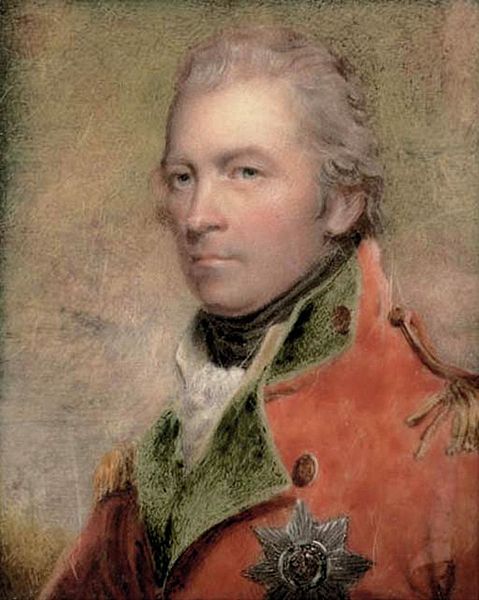Immortal Meals #30: Chair Jumping at Court June 27, 2016
Author: Beach Combing | in : Modern , trackback
Colonel Lennox (1819) was a British ne’erdo well who evolved into a capable member of the British establishment eventually starring as Governor General of North America. As a young man testosterone dripped from him as he walked along: he argued, dueled, whored and was a fine wicket keeper… The event below relates to the aftermath of a duel that Lennox had with Frederick Duke of York: in which Lennox’s bullet had actually grazed the Duke.
The following story would seem incredible if my father had not heard it from an eye witness. When Colonel Lennox (afterwards Duke of Richmond) called out and nearly shot the Duke of York, the indignation of the Royal family and of their friends was extreme. After a time, however, the Prince Regent forgave the audacious duelist and quite unexpectedly asked him to dinner. A large party was awaiting the arrival of the Royal host when, to their astonishment, Colonel Lennox was announced. Being received with silence and cold looks, he resolved to mark his sense of the courtier’s disapproval. So he laid down two chairs side by side on the floor, and leapt over them. Being a man of singular activity, he repeated this little comedy, after laying a third chair over the first, and again after laying a fourth on the second, and after after laying a fifth on the summit. At this last jump, however, his foot caught the topmost chair, and the pile was scattered over the floor.
Oh to have seen that display. Did Lennox look sheepish or triumphant when he stood up before the assembled host?
Other immortal meals: drbeachcombing AT yahoo DOT com
Source: Mid Sussex Times (12 July 1892), 6
Invisible writes, 30 Jun 2016, ‘Well, Lennox looks a devil of a chap! The account of his chair-jumping for some reason reminded me of this story, also involving the Prince Regent. I know that many people find the Regency to be a highly romantic period, but factor in the gorging, swilling, and the chamber pots kept under the sideboard, somehow it just doesn’t seem all that glamorous no matter how dashing the uniforms and picturesque the oaths. Here is an anecdote of his royal highness I heard the other day from one who had it at first hand in the days of the regency. It has never yet, I believe, been in print. At a small dinner party at Carlton House, Colonel Hamlyn, one of the boon companions of the prince, told a story which, like most stories of the regency, was more distinguished by its point than by its propriety. When Colonel Hamlyn had finished the First Gentleman in Europe filled his glass and threw its contents into his guest’s face, saying, “Hamlyn, you’re a blackguard.” What was the colonel to do? To challenge the regent was treason and yet to return the insult in kind was to take a course which must have compelled the prince, as a gentleman, to challenge the colonel, or to ask some one to take up the quarrel for him. And yet to sit still was impossible. Colonel Hamlyn solved the difficulty by filling his glass and throwing the wine into the face of his next companion. “His royal highness’s toast—pass it on.” This was wit in action. It sealed Colonel Hamlyn’s friendship with George IV. “Hamlyn,” he said with a slap on the shoulder, “you’re a capital fellow. Here’s a toast to you.”—The Gentleman’s Magazine, December, 1870.


